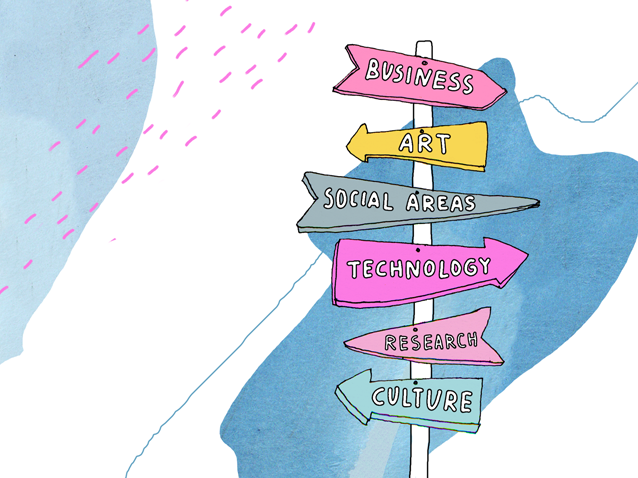
Carola Hansson: “It is quite a difficult thing for a woman to be an author”
Creativity, emptiness and ideas stemming from representations
After completing a book, I always feel an emptiness inside. Just as powerful as the inspiration that preceded it from the idea and the beginning of work. When I get involved in presentation events, I come to life again. I’m fortunate in that I rarely hear criticism of my work, but I must say that praise and positive reviews are also very exhausting for an author. However, although presentations can be tiresome, they are a good way to interact with readers and get feedback.
I used to work as a television journalist in unison with my writing, but I came to the conclusion that it was very distracting. So, in the late 1980s, I dedicated myself in full to my novels. I begin work early in the morning: first I write by hand, and then I sit at my computer, print out, edit, rewrite. However, inspiration can come at any time – when I’m driving somewhere, taking a stroll, talking with friends, playing with my grandson. In that case, I simply take out my notebook and jot down a few notes.
Ideas stem from images. It can be a picture or a musical or other image. My novel Steinhof was also born out of an image.
I don’t have any unfinished books or ideas that I have put on the backburner. I always work on one project at any one moment in time. When that novel is completed, often a feeling of euphoria comes first, then the emptiness that I have already mentioned. I am very wary of ideas that come during this time of emptiness. I ponder: are they really important? Or are they merely an attempt to fill the empty space? After completing a book and prior to starting work on the next one, a certain amount of time should pass.

Mutual understanding with publishers and translators
Throughout my career I have worked with two different publishers, the biggest on the country’s market. It used to be difficult to change one for another; now it has become common practice. Fortunately, I have perfect understanding with my current publisher; she has been on the market for a long time and knows what she’s doing, and what is important is that she takes into consideration what I have to say. I hope I won’t feel the need to change her soon.
I can assess the quality of the translations of my books into English or Russian. When it comes to other languages, it’s always a gamble. You can’t do anything but trust your translator and his publisher.
I remember the moment clearly when I felt like I wanted to learn Russian. It was following the Doctor Zhivago play by Pasternak, a very popular author in Sweden in the days of my youth following the scandal with the Nobel Prize. The scene with the empty table and the voice coming out of nowhere gave me goose bumps. I began reading Russian literature and learning the language in order to be able to read the originals. Unfortunately, I have very little speaking practice, that’s why I don’t speak Russian. Nevertheless, I read and understand it.

Women in the profession and relation to the Russian language
For a woman writing, and especially to do work in an efficient way, is quite a difficult thing to do. Even today, there is a tight professional male circle which they do not want to let you enter. With regards to the concept of a “women’s language” in literature, I don’t quite agree with this. I have my own personal language; I do not wish to categorise it as “female”.
I find it surprising and interesting that more and more feminine markings are beginning to appear in the Russian language to denote feminine spheres of activity or professions. You wouldn’t find the word “pisatilnitsa” (feminine for ‘writer’ in Russian) in the Swedish language. On the contrary, an equivalent of the word “it” came into use recently. In the beginning, it was used as a joke, but now it is increasingly heard in official speech. I am more in favour of feminine markings than not. It’s great to celebrate being a woman, to be proud of this.

Political issues and how they affect life
With regard to the political situation around the world, I’m rather a pessimist. The processes that are taking place frighten me, the fluctuations in the global economy, the tricky information war. It has become difficult to tell what is true and what isn’t. However, you have to be an optimist a little, otherwise you stop doing your work well. If everyone becomes pessimistic and stops doing his or her work well, then chaos will ensue.
Sweden really is a wonderful and comfortable country to live in, with well thought-out and functioning social programmes. However, of course, it has its problems. We have taken in quite a large number of refugees, and issues regarding their settlement and employment have arisen. As a result, radical nationalist movements opposing such a large number of migrants have stirred up and become popular. This is a very superficial view. Any in-depth study would show that the higher the migration into a country, the more opportunities for growth it would have in the global outlook. Of course, like any endeavour, this situation has to go through its crisis so that the country can subsequently reach a new level.
*One of Carola Hansson’s most famous novels, Steinhof, has been translated into Ukrainian by the Komora publishing house and was presented at the Book Arsenal 2016 (Kyiv, Ukraine).




